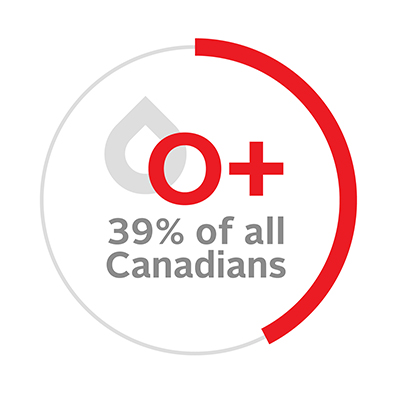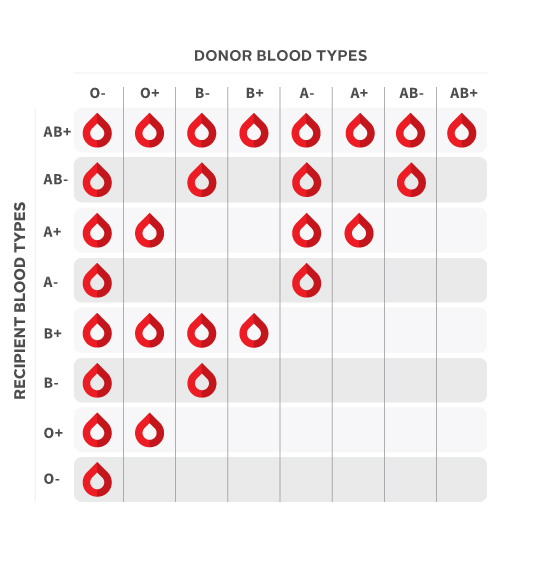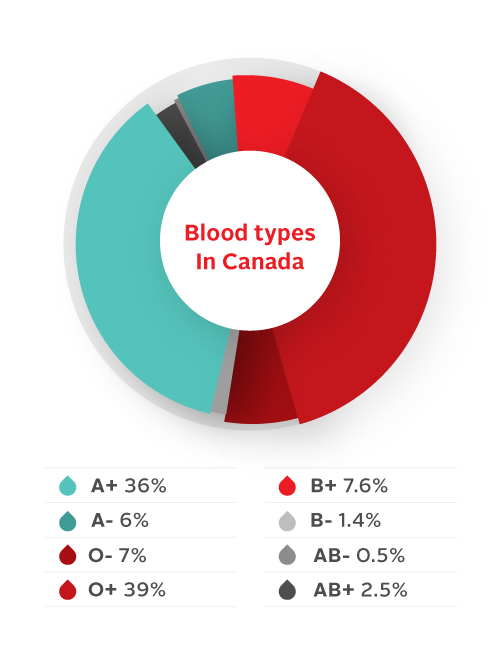What is my blood type?

How to find out your blood type
Every donor is tested as part of the blood donation process to identify exactly which type they belong to. Book your appointment to donate blood and find out.
What is the most common blood type?
O-positive blood type is the most common blood type in Canada — 39 per cent of Canadians share this blood type.
What is the universal donor blood type?
Donors who are AB+ positive are the universal platelet and plasma donors because these blood components can be transfused to any patient.
Donors who are O-negative are the universal blood type; O-negative red blood cells are compatible with all other blood types. This means that in critical emergencies — when there is no time to confirm a patient’s blood type — O-negative blood can make a lifesaving difference.
How many different blood types are there?
Blood type compatibility
The right blood transfusion can mean the difference between life and death. Our immune systems are designed to know what belongs in our body and what doesn’t. If a patient gets the wrong blood type, things can go very wrong. That’s why there are very specific ways in which blood types must be matched for a safe transfusion.
Use the interactive graphic below to learn more about matching blood types for transfusions.
The universal red cell donor has type O-negative blood. O-negative donors are essential to saving the lives of patients when we don’t know their blood type (often in trauma situations), and their blood is the only type that O-negative recipients can receive. The universal plasma donor has type AB blood.
Also, Rh-negative blood is given to Rh-negative patients, and Rh-positive or Rh-negative blood may be given to Rh-positive patients. The rules for plasma are the reverse.
Blood type chart
Your blood type determines who you can donate blood to, and whose blood you can receive. People with O-negative blood, for example, can give blood to recipients of any blood type. But, they can only receive blood from O-negative donors. The opposite is true for people with an AB-positive blood type — their donations can only be used for patients who are AB-positive, but they can receive blood from donors of any blood type.
Rare blood program
Did you know that some people’s blood is rarer than others? It’s not just about being type A, B, O or AB. On the surface of our red blood cells are molecules called antigens. There are about 360 known antigens — and some combinations of antigens are far less common than others.
Whenever a blood transfusion is required, time is of the essence. But if someone in need has a rare blood type, finding a matching donor can be hard. Through our rare blood program, we make sure lifesaving rare blood is available to patients whenever and wherever it’s needed. To deliver on that promise, we need everyone with rare blood to donate regularly.

